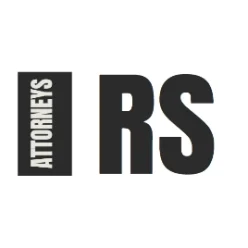
TransUnion Resident Screening — This is a process in which the company TransUnion conducts resident checks for landlords to determine their creditworthiness and reliability as tenants. This report includes credit histories, rental history, and other personal data that may impact the decision to rent out housing.
What is a TransUnion screening report?
A TransUnion screening report is a document that contains all the information gathered about a potential tenant, including credit rating, data on previous residences, and any legal judgments or bankruptcies. This report is used by landlords to make informed decisions about property rental.
Error Statistics in TransUnion Reports
| Parameter | Value |
| Proportion of reports with errors | 25% |
| Common errors | Incorrect personal data, outdated information about credit obligations |
| Impact on landlord’s decision | 60% of rental rejections due to erroneous information |
Impact of Errors on Consumers
Errors in the TransUnion screening report can seriously damage a consumer’s chances of renting the desired housing. Incorrect information can lead to unjustified rejections, which, in turn, makes the search for housing more difficult and stressful.
Additionally, correcting these errors can take a significant amount of time, exacerbating the situation and increasing the consumer’s expenses for temporary housing or double relocations.
Legal Framework
Credit rating and tenant screening procedures are regulated by US federal laws, the most important of which are the Fair Credit Reporting Act (FCRA) and the Fair Housing Act (FHA). These laws ensure the following:
- FCRA (Fair Credit Reporting Act): Requires credit bureaus and other agencies to maintain accuracy, fairness, and confidentiality of information in consumer credit reports. Consumers have the right to obtain their credit reports for free once a year, dispute incorrect information, and demand its correction within a reasonable time (30 days).
- FHA (Fair Housing Act): Prohibits discrimination on the basis of race, skin color, national origin, religion, gender, marital status, or disability in renting or selling housing. This includes the use of erroneous or outdated information in credit reports to deny rental.
Examples of Violations in TransUnion Resident Screening Review
- Incorrect personal information: Often credit reports contain erroneous data about identity, such as the wrong name or date of birth, leading to incorrect identification and rental denial.
- Outdated information: Credit reports may include information about debts that have already been paid off or dismissed by court. The presence of such information can negatively impact the consumer’s credit rating.
- Mixing credit histories: Sometimes, a report may contain information belonging to another person with a similar name or social security number. This can lead to an unfair rental decision.
Knowing these laws helps consumers protect their rights and provides them with grounds for action when errors are found in TransUnion screening reports.
Step-by-Step Instructions for Self-Resolution of Errors
- Obtaining a copy of your credit report: Request a free copy of your credit report from TransUnion. You are entitled to a free report each year under the FCRA law.
- Checking the report for errors: Carefully review your credit report for errors. Pay attention to incorrect personal data, outdated credit information, and data that does not belong to you.
- Gathering evidence: Collect all necessary documents that prove errors in the report. These may include payment receipts, court documents, debt discharge letters, and official error correction letters from other credit bureaus.
- Submitting a claim to TransUnion: Prepare an official letter of claim to TransUnion, indicating the found errors and attaching supporting documents. Send the documents by mail with delivery notification or use electronic services to track correspondence.
- Monitoring the process: TransUnion is required to respond to your request within 30 days. They will conduct an investigation and must remove or correct any incorrect information.
- Verifying corrections: After receiving a response from TransUnion, request a new copy of your credit report to ensure all errors have been corrected. If errors still persist, you may file a lawsuit independently or seek legal assistance.
When to Consult a Lawyer
Sometimes, attempts to correct errors in the TransUnion screening report may be ineffective or too complex. In such cases, the assistance of a qualified lawyer may be necessary. Here are some situations when you should seek professional legal help:
Complex legal issues
Recurring errors: If errors in your report are corrected but then reappear, the problem may be deeper than it seems at first glance.
Legal disputes: If your claim involves legal aspects, such as the erroneous use of your personal information or data falsification, a professional lawyer can more effectively protect your rights.
No response from TransUnion
No response: If after the legal waiting period (30 days) TransUnion does not respond to your request for error correction, a lawyer can help hold the credit bureau accountable and expedite the process.
Complex corrections
Multiple errors: If your credit report contains multiple errors or errors related to financial fraud, a consumer rights protection specialist will be necessary for thorough analysis and a comprehensive approach to solving the problem.
Legal actions
Court cases: In cases where errors in the credit report have led to serious financial losses or discrimination, it may be possible to file a lawsuit against TransUnion or other responsible parties. A lawyer can assess the chances of success of the case and represent your interest in court.
Benefits of Working with RS Attorneys
If you encounter errors in your TransUnion screening report and are having trouble correcting them, working with the legal firm RS Attorneys can significantly simplify and expedite this process. Here are the key benefits you will receive by choosing our company:
Free consultations
Accessibility: Before making a decision to cooperate, you can receive a complete free consultation, during which we will assess your case and discuss possible steps to resolve your problem without any financial obligations on your part.
Payment by the opposing party
Financial benefit: You do not incur any costs for legal services when cooperating with us. RS Attorneys receives payment directly from those against whom the lawsuit is filed, which means that our interests are fully aligned with yours—we are interested in resolving your problem as quickly and efficiently as possible.
Deep expertise
Specialization: Our team specializes in correcting errors in credit reports and protecting consumer rights. We possess deep knowledge of federal and state laws on credit history and rental rights.
Individual approach
Personalization: Each case is unique, and we approach the resolution of each problem individually. We develop a strategy that best suits your needs and circumstances.
Examples of successful cases
Real results: Our practice includes many successful cases where we not only helped clients correct errors in their credit reports but also restored their reputation and obtained compensation for the inconveniences and financial losses caused.
Contacting us
Choosing RS Attorneys to resolve issues related to the TransUnion screening report guarantees you not only legal support but also a significant reduction in related stresses and financial costs. If you are ready to start the process of correcting your credit report or just need a consultation, contact us today so we can help you restore your right to fair and accurate credit rating.
